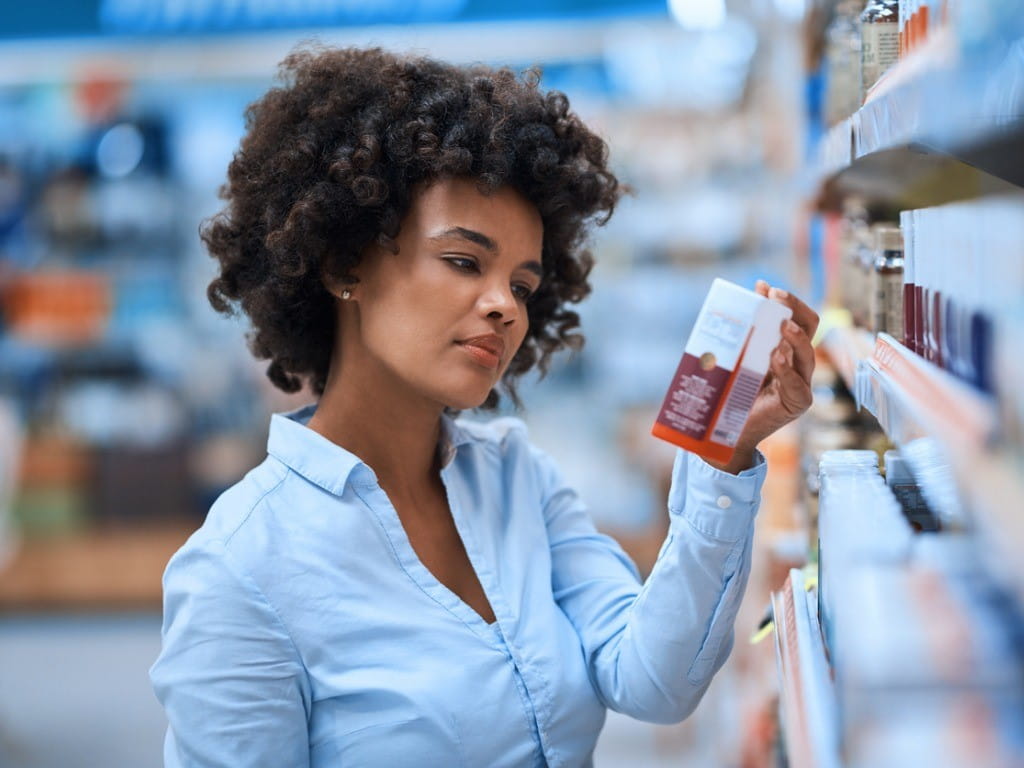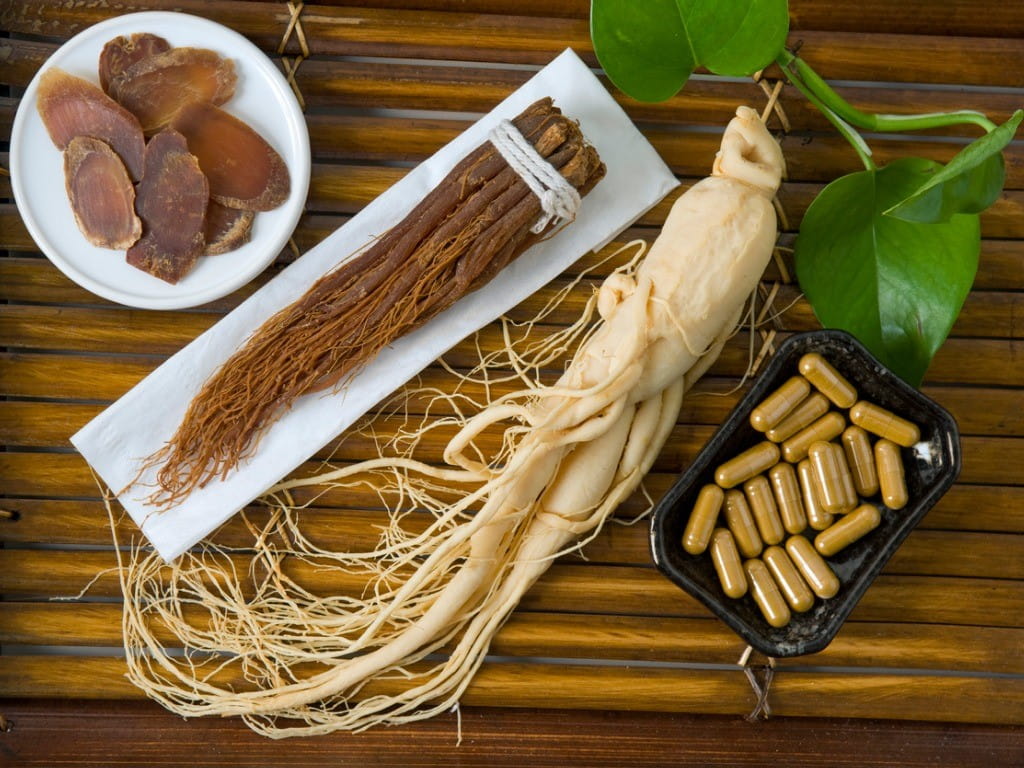Side Effects of Ginseng Supplements

The Bottom Line
"Natural" does not always mean "safe." Like all medicines, herbal products and supplements are expected to have some side effects, and ginseng is no exception. Some side effects are related to the natural toxicity of the plants they come from or from problems in manufacturing.

The Full Story
According to the American Botanical Council, the use of herbal supplements in the US has been steadily increasing. Sales of these products in 2017 totaled more than $8 billion. As these products become more popular, we should ask ourselves: are they actually safe and effective?
Ginseng, a regularly top-selling herbal supplement, comes from the root part of several plant species in the Panax genus. The most common type of ginseng supplement comes from Panax ginseng, which roughly translates to "all-healing man-root." It is also called Asian ginseng, Chinese ginseng, or Korean ginseng. Other sources of ginseng include American ginseng (Panax quinquefolius) and Tianqi ginseng (Panax notoginseng). This root has been used for thousands of years as part of traditional Chinese medicine and is said to improve physical and mental performance and increase the body's ability to respond to stress.
Outside of the ginseng supplements available for purchase over-the-counter, ginseng can be consumed in many different forms. The raw root can be peeled and chewed, soaked in wine to make an extract for drinking, or boiled to make a tea. Dried ginseng can be soaked or boiled until it is soft and then stewed to make an extract for drinking. Ginseng is a common ingredient in many energy drinks and teas and it is a regular addition to Asian cuisine.
The desire to use natural products that are not mass-produced is understandable. However, it is important to acknowledge that these herbal and homemade treatments come with their own risks. No two ginseng roots are the same, and there is no way to guarantee how much (if any) active ingredient from the ginseng is being ingested when using the natural root.
In general, ginseng use is well tolerated, but some patients experience side effects when taking it. Side effects associated with both Asian and American ginseng include nervousness, insomnia, changes in blood pressure, breast pain, vaginal bleeding, vomiting, diarrhea, and mania. There have been rare reports of patients experiencing severe symptoms like inflammation of the arteries in the brain (cerebral arteritis), severe skin reactions (Stevens-Johnson syndrome), inflammation of the liver (cholestatic hepatitis), and anaphylactic allergic reactions.
Ginseng has also been shown to interact with other herbal products, prescribed medications, and foods. This list includes caffeine, alcohol, blood-thinners, medications for the treatment of HIV, diabetic medications, immunosuppressants, antidepressants, bitter orange, ephedra, and bitter mallow. Avoiding these interactions is why it is important to speak to your physician and pharmacist before taking products like ginseng.
There are a few studies showing that ginseng use is possibly effective in improving cognitive function and Alzheimer's disease, chronic obstructive pulmonary disease, influenza, fatigue related to multiple sclerosis, erectile dysfunction, premature ejaculation, and sexual arousal. This research is preliminary or limited in many of these studies and further study is needed.
In 2015, the New York Attorney General's office tested herbal products from four major retailers (GNC, Target, Walmart, and Walgreens). Ginseng supplements from each of these retailers was included in the testing. They found that 79% of the herbal products tested did not contain any of the plants listed on the ingredient labels and many contained unlisted contaminants from other plants. You can check alerts provided by the Food and Drug Administration to ensure that there are no active warnings or recalls on the product you are interested in using.
If you suspect someone has swallowed ginseng and is having a problem, do not make the person vomit. Immediately check the webPOISONCONTROL® online tool for guidance or call Poison Control at 1-800-222-1222.
Lindsy Liu, PharmD
Certified Specialist in Poison Information
Poisoned?
Call 1-800-222-1222 or
Prevention Tips
- Speak with your physician and pharmacist before starting herbal products or dietary supplements to ensure that there is no risk of worsening existing medical conditions or drug interactions.
- Follow supplement instructions and do not take more than the recommended dose.
- Check FDA alerts for supplement recalls or warnings.
- Use only USP-Verified dietary supplement and herbal products.
This Really Happened
A 28-year-old woman drank a homemade ginseng extract made by stewing ginseng slices in rice wine to cure her fatigue. Eight hours after drinking the extract she experienced a severe headache, nausea, vomiting, and chest tightness. Six days later she was found to have inflammation of the arteries in her brain. She fully recovered over the next 10 days. (from Ryu and Chien, 1995)
For More Information
References
Hamilton W, Kirchain W. Ginseng: fact versus myth. Semant Schol. 2000 Jul-Aug;10-2.
Panax ginseng. In: Natural Medicines Database – Professional. Stockton (CA): Therapeutic Research Center; 29 Jan 2019 [accessed 27 Feb 2019].
Ryu SJ, Chien YY. Ginseng-associated cerebral arteritis. Neurology. 1995;45:829-30.
Poisoned?
Call 1-800-222-1222 or
Prevention Tips
- Speak with your physician and pharmacist before starting herbal products or dietary supplements to ensure that there is no risk of worsening existing medical conditions or drug interactions.
- Follow supplement instructions and do not take more than the recommended dose.
- Check FDA alerts for supplement recalls or warnings.
- Use only USP-Verified dietary supplement and herbal products.
This Really Happened
A 28-year-old woman drank a homemade ginseng extract made by stewing ginseng slices in rice wine to cure her fatigue. Eight hours after drinking the extract she experienced a severe headache, nausea, vomiting, and chest tightness. Six days later she was found to have inflammation of the arteries in her brain. She fully recovered over the next 10 days. (from Ryu and Chien, 1995)
